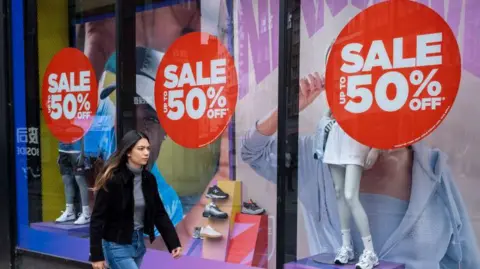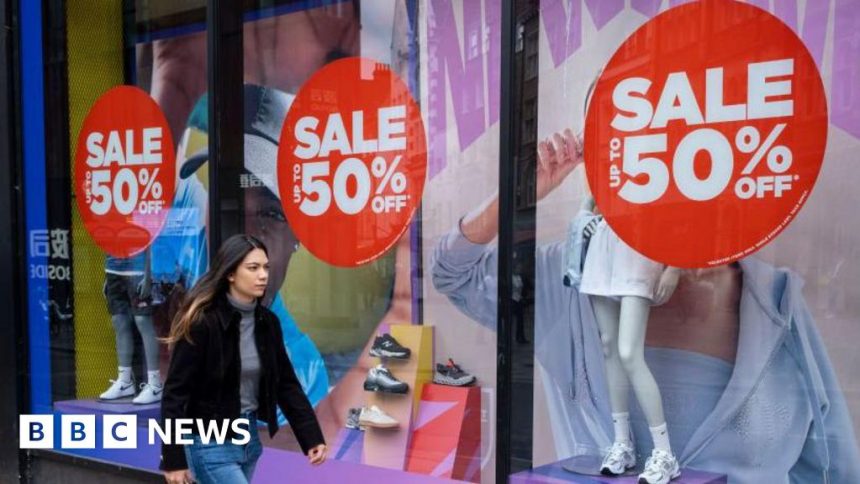Shop prices fall for first time in nearly three years
 Getty Images
Getty ImagesSummer sales by fashion retailers trying to shift stock helped shop prices to record their first annual fall for nearly three years, research suggests.
Prices in August were down 0.3% from a year ago, the first such fall since October 2021, according to the British Retail Consortium (BRC).
The drop in prices was driven by non-food goods, such as clothing and furniture, with retailers offering discounts after wet weather and continued cost-of-living pressures hit sales.
Food prices continued to rise, but at a slower pace, the BRC industry body said.
Fresh food inflation, such as fruit, meat and fish, had seen the biggest monthly decrease since December 2020, it said, thanks to falling costs from suppliers.
But the BRC said non-food retailers had been “discounting heavily to shift their summer stock, particularly for fashion and household goods”.
“This discounting followed a difficult summer of trading caused by poor weather and the continued cost of living crunch impacting many families.”
BRC chief executive Helen Dickinson said that while households will be “happy” to see the prices of some goods falling, there was no guarantee this trend would continue.
“The outlook for commodity prices remains uncertain due to the impact of climate change on harvests domestically and globally, as well as rising geopolitical tensions,” she said.
“As a result, we could see renewed inflationary pressures over the next year.”
Lindsay James, investment strategist at Quilter Investments, said the wet summer weather had really hit clothing sales.
She told the BBC’s Today programme that while there were “encouraging signs that inflation is coming under control”, the figures were also a “reminder that this economic recovery is fragile”.
The most recent official inflation figures – which indicate how fast prices are rising overall – showed the rate rose to 2.2% in July, the first increase this year.
The rise in July had been widely predicted and was due to prices of gas and electricity falling by less than they did a year before.
The Bank of England has predicted the inflation rate will rise to about 2.75% in the coming months before falling below 2% next year.
Andrew Murphy, chief executive of toy retailer The Entertainer, which has 165 UK stores, told BBC that some of the cost pressures it has been facing over the past 18 months “have started to ease just a little”.
However, he added that the biggest cost not related to the products it buys was wages, which have risen by about 10% this year due to increases in the national living wage and “that one will continue to grow”.








